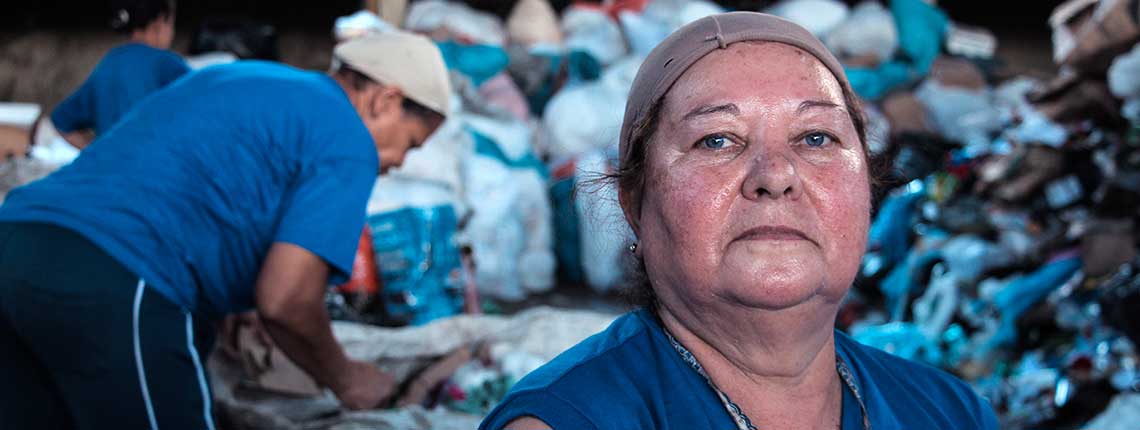
Every three years, the United Cities and Local Governments’ (UCLG) Global Observatory on Local Democracy and Decentralization publishes its flagship GOLD Report. The sixth edition focuses on inequality, a particularly pertinent theme in the light of the profound and lingering impacts of COVID-19.
UCLG recognizes the need for a “step change” in local and regional governments’ strategies to tackle urban and territorial inequalities. The report will be launched at the UCLG World Congress in Daejeon, South Korea, in October 2022. WIEGO was asked for its expertise on the urban informal economy, with a focus on an agenda for action for local authorities, and UCLG recently released our case-based contributions.
How local governments can enhance urban livelihoods
Formalization of the informal economy has been a constant theme in policy debates and prescriptions, yet these have too often narrowly focused on regulating and taxing informal enterprises while neglecting how to increase the productivity and earnings of informal enterprises. In their issues-based chapter, authors Martha Chen and Caroline Skinner provide an agenda for action that explores key drivers of urban inequality reflected in the scarcity of decent work and in social-spatial disparities in the location of different productive activities within cities. Through the lens of “prospering”, the authors analyze how local and regional governments can increase decent work opportunities and mitigate the effects of future pandemics and climate change on decent work, urban prosperity and inequality.
Lessons on inclusive urban design
Public-space trading is a key source of livelihood for millions of people, particularly in the Global South, and is a significant source of employment for women, migrants and other marginalized groups. Street vendors and market traders provide affordable goods and services at convenient locations often to low-income urbanites. Research also repeatedly confirms that informal traders play a critical role in urban food security – see, for example, the evidence from the Hungry Cities Partnership project. Yet, local authorities seldom provide enough appropriately located space, infrastructure or services to maximize livelihood opportunities and the contribution of public-space traders to city life. Authors Avi Majithia, Shalini Sinha, Caroline Skinner, Richard Dobson, Sarah Heneck and Toni Ottanelli-Gale profile a range of public-space trading innovations that emerged during the pandemic in Durban and Delhi and the lessons they suggest for inclusive street trader management there and elsewhere.
Continue reading about public-space trading innovations in Delhi, India, and Durban, South Africa.
Strengthening management of public space
Social dialogue between street vendor organizations and municipal governments is a key route to inclusive solutions in the regulation and management of public spaces. Olga Abizaid and Ana Carolina Ogando explore the case of Lima, Peru, where local government authorities and street vendor organizations engaged in regular dialogue. This built trust between parties and led to multiple stakeholders addressing and solving problems together, particularly given the role that municipal officers can play in building trust among stakeholders and strengthening workers’ understanding of norm-setting processes. This also resulted in the development of Ordinance 1787 on street vending. The Lima case shows how social dialogue provides a path for reconciling informal workers’ right to work in public space and municipal governments’ urban development goals.
Read more about Lima’s approach to social dialogue between local authorities and street vendors.
Possibilities for renaturing cities
The challenges and possibilities for “renaturing” cities are examined in a case study from Brazil, where the experience of Belo Horizonte’s approach to solid waste management is explored. Authors Sonia Dias and Ana Carolina Ogando look at how informal waste pickers are integrated into the city’s solid waste management system and the role played by the Municipal Waste Citizenship Forum, a multi-stakeholder participatory forum. They reflect on how this positioned actors to mitigate the spread of COVID-19. This case study shows the potential of solid waste management in contributing to greening urban infrastructure and systems and creating decent work conditions and opportunities.
Continue reading about inclusive solid waste management systems in Belo Horizonte.
Since the publication of its first edition in 2008, GOLD has become an international benchmark in the analysis of local and regional governments worldwide. It is hoped that WIEGO’s contributions will place urban informal workers and their contributions to city making firmly on UCLG members’ agendas.
Top photo: Waste picker cooperative in Belo Horizonte, Brazil. Credit: Bruno Greco
Related Posts
-
Informal Economy Theme
-
Informal Economy Topic
-
Language
